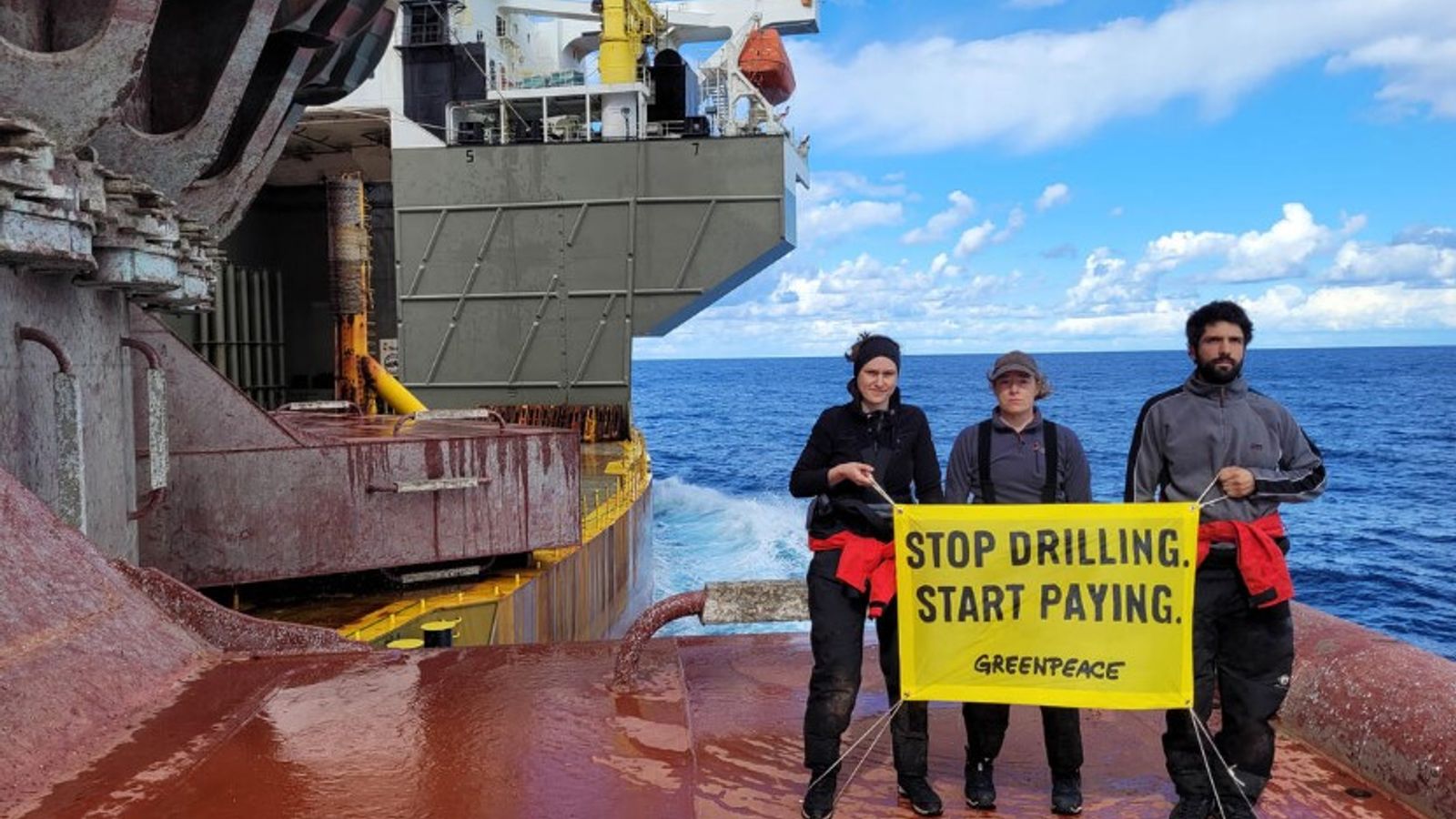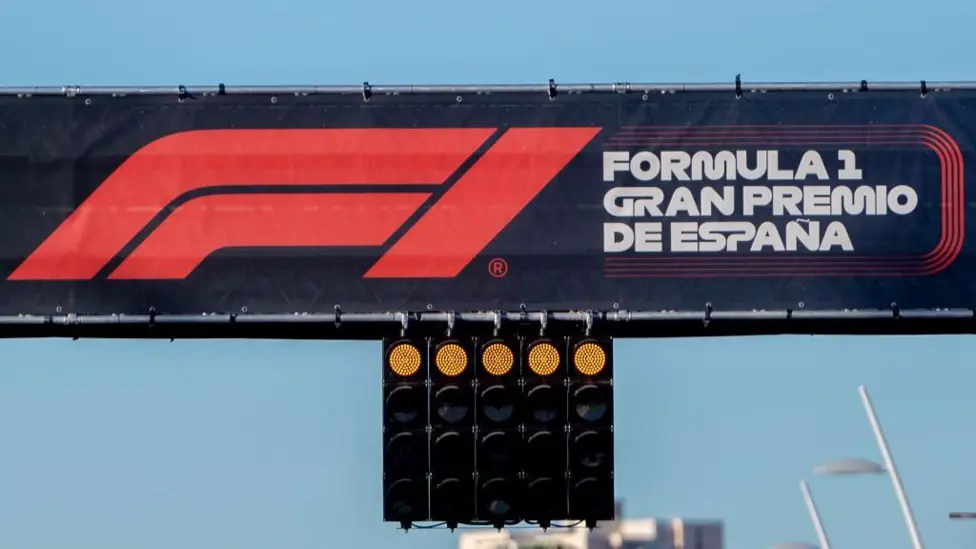Shell and Greenpeace settle climate protest case
Shell and the environmental campaign group Greenpeace have settled a multimillion-pound lawsuit brought over an at-sea protest.

The oil firm brought the case, described by Greenpeace as an act of "intimidation", in London over an incident in January last year that saw four activists board a production vessel while in transit near the Canary Islands.
The four, who were campaigning against oil drilling, used ropes to hoist themselves on to the vessel from inflatable boats that chased the ship at high speed.
Money latest: Inflation-busting rise in cost of Christmas dinner
They stayed aboard until it reached Norway two weeks later.
Shell brought the case on the grounds that boarding a moving vessel at sea was "unlawful and extremely dangerous".
It also complained of a spike in costs, such as for wider security, in the wake of the protest.
Greenpeace confirmed it had agreed to pay £300,000 to the Royal National Lifeboat Institute in settlement of the case.
It also agreed to avoid protesting for a period at four Shell sites in the northern North Sea.
However, it said there were no plans to abandon protests in the wider North Sea.
The group claimed the company, which was understood to have been seeking around £700,000, backed down as the case had become a "PR millstone tied around its neck".
Greenpeace International said: "The settlement follows over a year of sustained campaigning by Greenpeace against Shell's lawsuit.
"Experts have described the case as a strategic lawsuit against public participation (SLAPP), a type of abusive lawsuit commonly brought by wealthy corporations to silence critics.
"The Greenpeace defendants faced over $11m in damages and legal costs as a result of the lawsuit.
"As part of the final settlement, they will accept no liability and pay no money to Shell."
Shell said Greenpeace's agreement to make a payment to the RNLI recognised its concern that Greenpeace's protest at sea was "a serious risk to safety and life".
"Shell is pleased that the dispute has been settled and that a payment in lieu of the costs it incurred can benefit a charity working on safety at sea.
"For Shell, the right to protest is fundamental and has never been at issue. Instead, this case was about an illegal boarding by protesters which a High Court judge described as "putting their lives and, indirectly, the lives of the crew at risk".
"He was also clear that Greenpeace could still protest from a safe distance and their human rights were not infringed."
The agreement was reached as Greenpeace remains involved in a separate case against the government's approval of development plans for Shell's Jackdaw gas field.
-SKY NEWS







